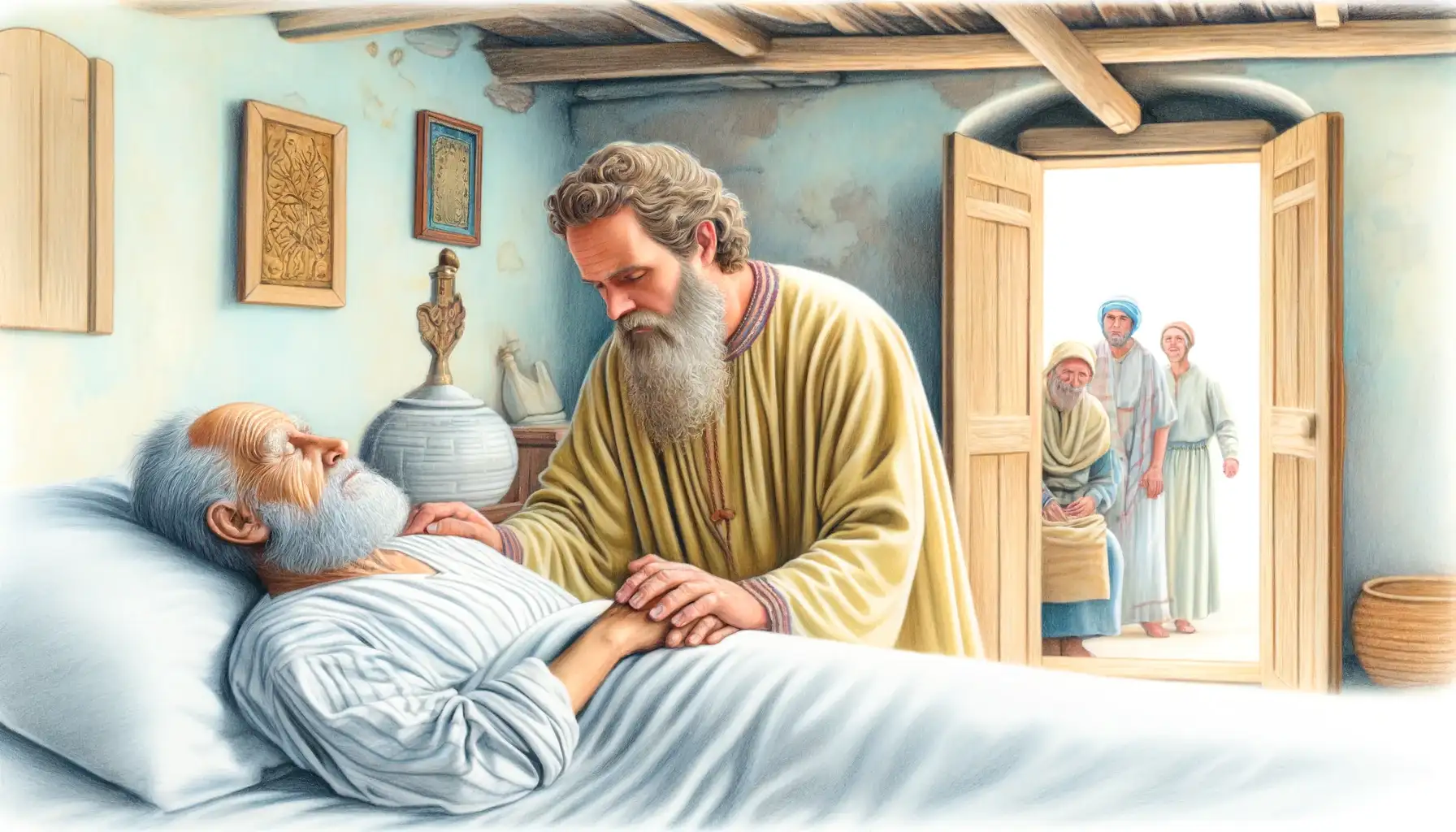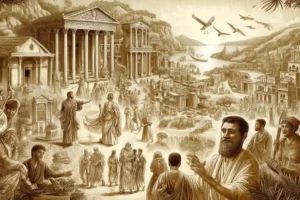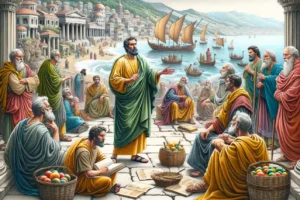
Healing of Publius’ Father
The healing of Publius’ father is a significant miracle performed by the Apostle Paul, showcasing God’s power and mercy.
- Location: The island of Malta.
- Context: Occurred during Paul’s journey to Rome as a prisoner.
- Key Figures: Publius, the chief official of Malta, and his sick father.
- Illness: Publius’ father was suffering from fever and dysentery.
- Miracle: Paul prayed and laid hands on him, resulting in immediate healing.
- Impact: Led to the healing of many others on the island and strengthened the faith of the Maltese people.
- Scriptural Reference: Acts 28:7-9.
Historical and Cultural Context
The healing of Publius’ father took place on the island of Malta, where Paul and his companions were shipwrecked en route to Rome (Acts 27). Malta, known as Melita in ancient times, was a significant stopover point in the Mediterranean, and its inhabitants were known for their hospitality. Publius was the chief official of the island, a position of considerable influence and responsibility.
The Miracle
After surviving the shipwreck, Paul and his companions were warmly received by the Maltese people. Publius hosted Paul and his group for three days, showing them generous hospitality (Acts 28:7). During their stay, Paul learned that Publius’ father was bedridden, suffering from fever and dysentery, a common and potentially deadly illness in the ancient world due to unsanitary conditions.
Moved by compassion, Paul visited the sick man, prayed, and laid his hands on him, resulting in his immediate healing (Acts 28:8). This miraculous healing demonstrated God’s power and mercy, working through Paul even in a foreign land.
Impact and Significance
The healing of Publius’ father had profound implications:
- Healing of Others: News of the miracle spread quickly, and many other sick people on the island came to Paul and were healed (Acts 28:9). This mass healing served as a powerful testament to God’s mercy and the truth of the Gospel.
- Strengthening Faith: The miracles performed by Paul strengthened the faith of the Maltese people and likely led to the spread of Christianity on the island. The acts of healing were a tangible demonstration of God’s love and power, validating Paul’s message.
- Divine Provision: The incident highlights how God provides for His servants. Despite being a prisoner and shipwrecked, Paul was used by God to perform miracles, showcasing that divine power transcends human circumstances.
Theological Insights
Several key theological themes emerge from this event:
- Compassion and Mercy: Paul’s actions reflect God’s compassion and mercy towards the suffering. The healings on Malta were acts of divine grace, demonstrating God’s concern for all people, regardless of their background.
- Power of Prayer: The healing underscores the power of prayer and the laying on of hands as conduits of God’s healing power. Paul’s faith and obedience were instrumental in channeling God’s power.
- Witness and Evangelism: The miracles served as a powerful witness to the truth of the Gospel, opening hearts and minds to the message of Christ. Miracles in the early church often accompanied the spread of the Gospel, authenticating the apostles’ ministry.
Conclusion
The healing of Publius’ father on Malta stands as a remarkable testament to God’s power and mercy. Through Paul’s faith and obedience, God brought healing and hope to the people of Malta, demonstrating that His love knows no boundaries. This event not only showcases the transformative power of God’s intervention but also highlights the importance of compassion, prayer, and evangelism in the Christian faith.



